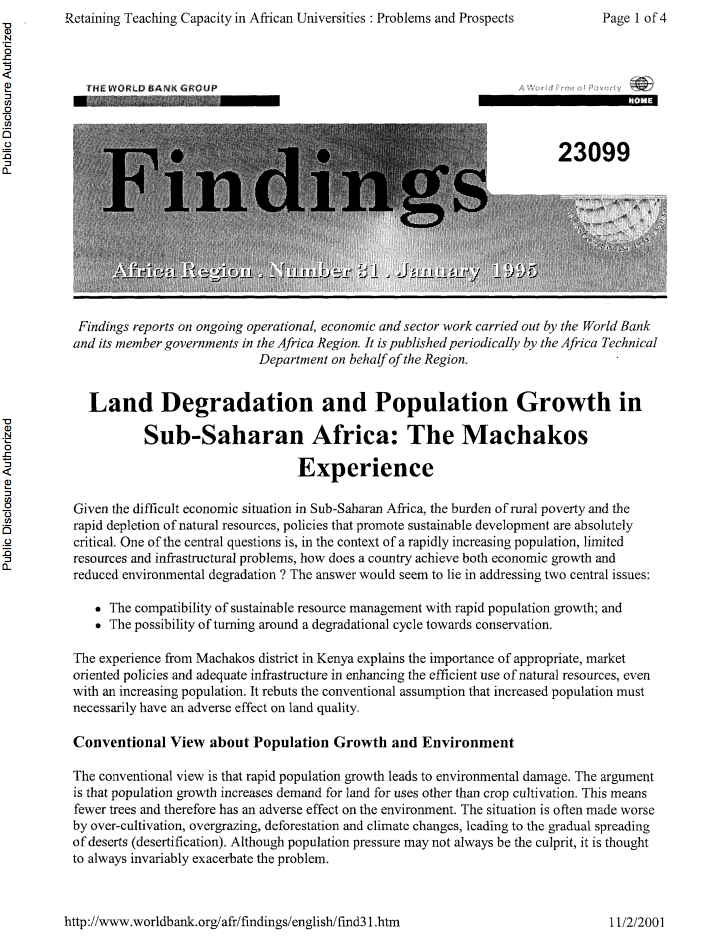Paraguay - Real Property Tax : Key to Fiscal Decentralization and Better Land Use, Volume 1. Main Report
This study has at its origin the land
question in Paraguay, namely that land ownership is highly
concentrated and has become a source of social conflict in
the rural areas where one-half of the population lives. A
central thesis of the study is that the existing patterns of
land use and ownership, in particular, the very large land
holdings (Zatifundio), are a reflection in part of the
almost insignificant land tax that is charged today on rural


